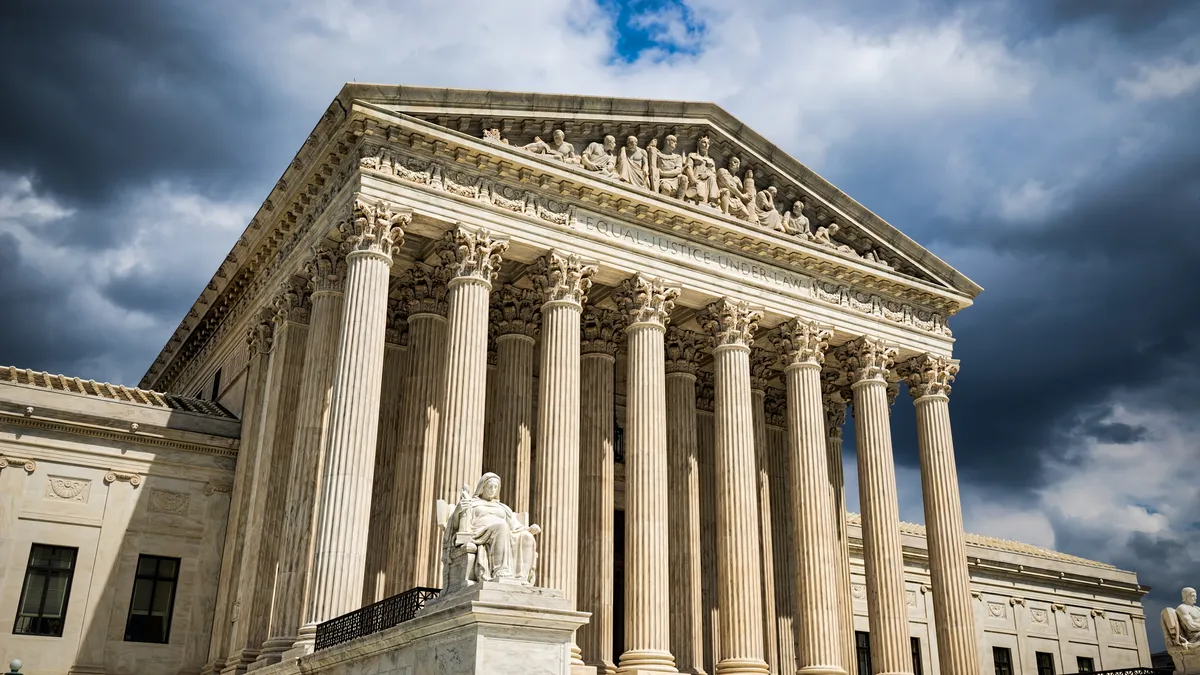Prosecutors will likely go after corporate bid rigging and other types of deceptive practices in more than one way if the U.S. Supreme Court throws out a controversial right to control theory of law, as it’s expected to do, a former prosecutor told Legal Dive.
The right to control theory, which the Second Circuit Court of Appeals in particular has used to affirm wire fraud even when a victim doesn’t lose property or money as a result of deception, has been controversial for years.
The theory holds that a deceptive practice, even if it doesn’t involve taking a victim’s property, can nevertheless constitute fraud because the right to information that’s needed to manage the property is itself a kind of property that the victim is entitled to and that deception can harm.
Use of the theory has been on the Supreme Court’s radar screen for years and it factored into a bid-rigging case, Ciminelli v. United States, that the top court heard late last month and is expected to announce a decision on next year.
Under the case, a company worked behind the scenes with government officials to get the first chance to negotiate a contract as part of a development program. Although no money or property was taken from the government that wasn’t already allocated to the program, it amounted to fraud under the Second Circuit’s view because the right to accurate information about the bidding process is itself a kind of property right.
Based on the questions that were asked during oral arguments last month, the justices appear to agree that the theory is not well-supported, with Justice Neil Gorsuch saying at one point the court was in “radical agreement” that the right to control is not a good theory.
That view accords with the top court’s reversal, in 2020, of a Third Circuit decision in “Bridgegate,” the politically charged case involving aides to former New Jersey Governor Chris Christie who partially shut down the George Washington Bridge in 2013, reportedly as a form of political payback to an official who didn’t support Christie’s reelection.
In that case, the Supreme Court rejected the idea that the deception used to justify the partial bridge closure was a form a fraud under federal fraud statutes because no taking of property was involved.
Fraud prosecution going forward
Should the Supreme Court reject the right to control theory, as it’s expected to do, without replacing it with an alternative way to look at deception as a crime that can be charged as fraud when no property is at stake, prosecutors will likely ramp up their use of antitrust and other fraud laws to see what sticks as lower courts take up cases.
“What you’re going to see is the government start charging multiple theories,” said Alison Anderson of Boies Schiller Flexner, a former fraud prosecutor with the Department of Justice. “The Supreme Court is going to let the lower courts sort it out.”
Anderson characterized the strategy as a belt-and-suspenders approach in which prosecutors bring cases – bid-rigging is expected to be a common one – under more than one statute to help ensure the complaint survives even if it fails under one of the laws.
“‘Let’s bring an antitrust charge, let’s bring a wire fraud charge,’” Anderson said, referring to prosecutors’ tactical approach. “Whatever they think fits the conduct so they have different ways to make sure the conviction stands while the courts figure out what the test is going to be.”
For in-house counsel, no change in risk management is needed if the right to control theory goes away as long as they have a robust compliance program in place.
“Companies are still going to have to implement policies and procedures in their compliance programs to deal with bid rigging, corruption,” she said. “None of that really changes.”
Even in the unlikely case the Supreme Court decides deception without property loss doesn’t fit within the wire fraud statute, which is the go-to law for most cases of this type, companies remain at risk under antitrust laws.
“DOJ has really upped its investigation and prosecution of bid rigging under antitrust laws and they go after people who received bribes” as well, she said.
As part of its stepped-up effort, DOJ’s antitrust division launched a procurement collusion task force to bring together resources from the FBI and other law enforcement agencies to better use antitrust laws to go after fraud cases.
“You’re already seeing an uptick in antitrust action against bid rigging,” she said.
That means, regardless of how the Supreme Court rules on the right to control issue, the federal government has the means to bring these non-property-loss fraud charges against companies.



















